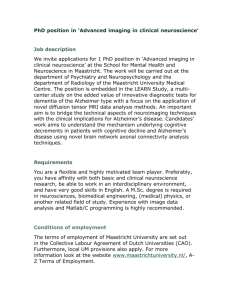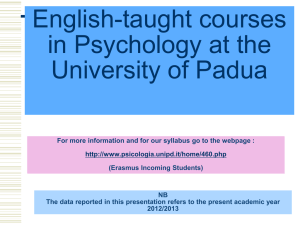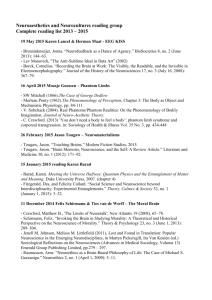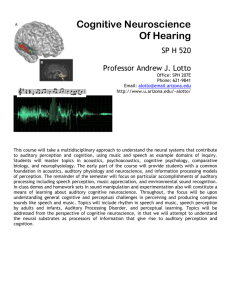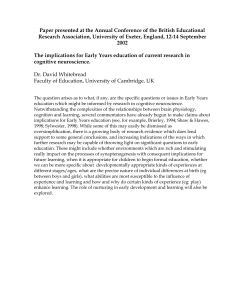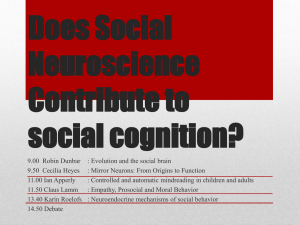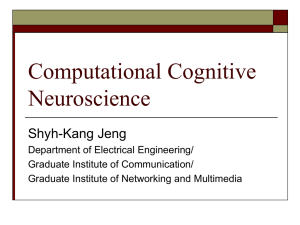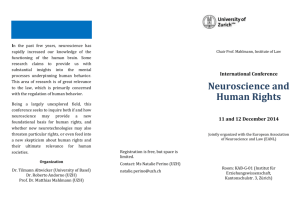LING646_F12_syllabus
advertisement
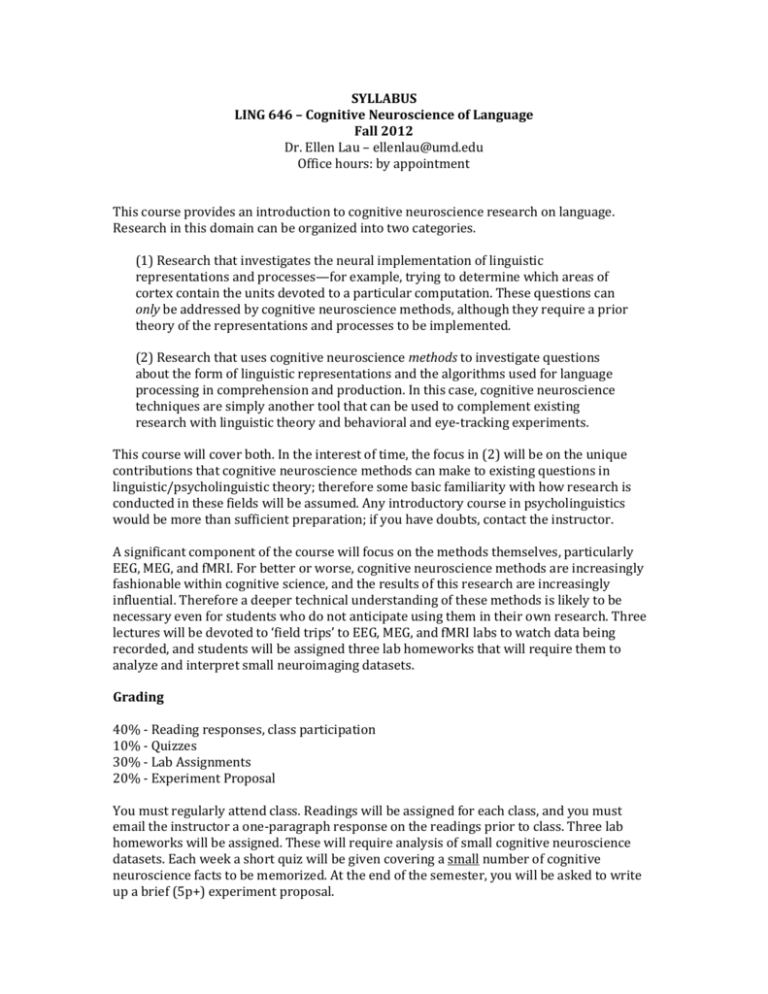
SYLLABUS LING 646 – Cognitive Neuroscience of Language Fall 2012 Dr. Ellen Lau – ellenlau@umd.edu Office hours: by appointment This course provides an introduction to cognitive neuroscience research on language. Research in this domain can be organized into two categories. (1) Research that investigates the neural implementation of linguistic representations and processes—for example, trying to determine which areas of cortex contain the units devoted to a particular computation. These questions can only be addressed by cognitive neuroscience methods, although they require a prior theory of the representations and processes to be implemented. (2) Research that uses cognitive neuroscience methods to investigate questions about the form of linguistic representations and the algorithms used for language processing in comprehension and production. In this case, cognitive neuroscience techniques are simply another tool that can be used to complement existing research with linguistic theory and behavioral and eye-tracking experiments. This course will cover both. In the interest of time, the focus in (2) will be on the unique contributions that cognitive neuroscience methods can make to existing questions in linguistic/psycholinguistic theory; therefore some basic familiarity with how research is conducted in these fields will be assumed. Any introductory course in psycholinguistics would be more than sufficient preparation; if you have doubts, contact the instructor. A significant component of the course will focus on the methods themselves, particularly EEG, MEG, and fMRI. For better or worse, cognitive neuroscience methods are increasingly fashionable within cognitive science, and the results of this research are increasingly influential. Therefore a deeper technical understanding of these methods is likely to be necessary even for students who do not anticipate using them in their own research. Three lectures will be devoted to ‘field trips’ to EEG, MEG, and fMRI labs to watch data being recorded, and students will be assigned three lab homeworks that will require them to analyze and interpret small neuroimaging datasets. Grading 40% - Reading responses, class participation 10% - Quizzes 30% - Lab Assignments 20% - Experiment Proposal You must regularly attend class. Readings will be assigned for each class, and you must email the instructor a one-paragraph response on the readings prior to class. Three lab homeworks will be assigned. These will require analysis of small cognitive neuroscience datasets. Each week a short quiz will be given covering a small number of cognitive neuroscience facts to be memorized. At the end of the semester, you will be asked to write up a brief (5p+) experiment proposal. Reading responses received after the start of class will not receive credit. Other assignments turned in late will be accepted only at the discretion of the instructor and will receive a significant penalty in grade. This policy is designed to protect graduate students from spending too much time on coursework projects or incurring incompletes. Students are encouraged to work together on lab assignments and discuss readings outside of class, but are expected to write up their work independently. Please don’t hesitate to contact me if you are having trouble with the lab assignments, the readings, or any other aspect of the course! Materials The schedule of readings, links to the articles, and supplementary readings is maintained on the course website. This schedule is subject to change. To the greatest extent possible, the labs have been designed to be doable on students’ personal computers. In some cases analysis software may not be available on all operating systems. In this case, it may be necessary to use one of the machines located in the upstairs suite of the Cognitive Neuroscience Lab at Marie Mount Hall to complete the analysis portion of the assignment.



